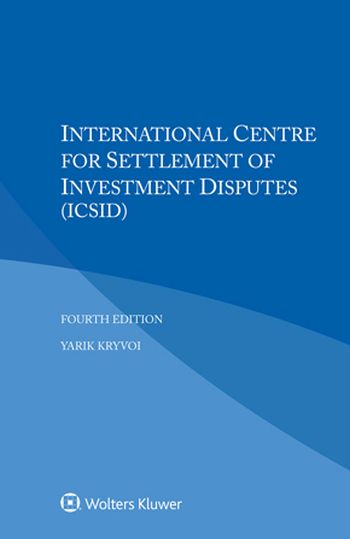
Derived from the renowned multi-volume International Encyclopaedia of Laws, this practical analysis of the structure, competence, and management of International Centre for Settlement of Investment Disputes (ICSID) provides substantial and readily accessible information for lawyers, academics, and policymakers likely to have dealings with its activities.
No other book gives such a clear, uncomplicated description of the ICSID’s role, its rules and how they are applied, its place in the framework of international law, or its relations with other organizations. The monograph proceeds logically from the organization’s genesis and historical development to the structure of its membership, as well as procedural and substantive aspects of ICSID arbitration. Its competence, its financial management, are fully described.
This fourth edition of the monograph has significantly expanded, not only as a result of updating the existing sections but also because of addition of several sections, important for better understanding of the process of dispute resolution such as dealing with evidence and damages, costs and fees. In addition, a separate chapter deals with non-investment obligations in international arbitration related to human rights and environment. This edition also pays more attention to concerns, expressed by states, investors and the civil society in relation to ICSID and ISDS. These include inconsistent decision-making, high costs of ICSID proceedings, the negative impact on sovereignty, contributing to an imbalance between the Global North and South, limited transparency and access to participation in proceedings by the third parties.
Systematic in presentation, this valuable time-saving resource offers the quickest, easiest way to acquire a sound understanding of the workings of ICSID for all inter